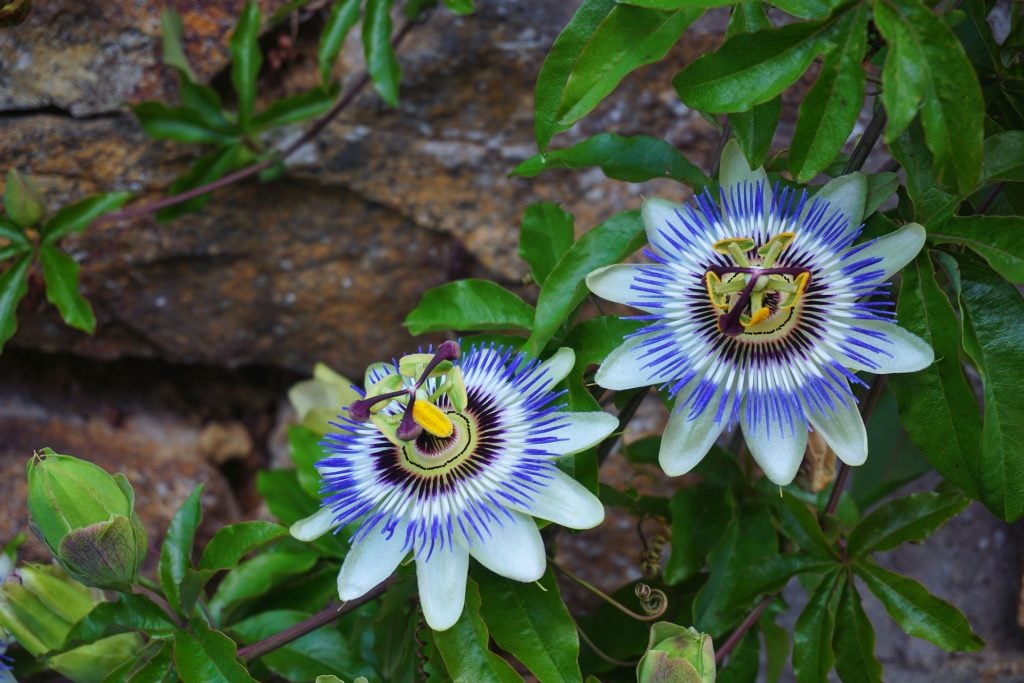Passionflower or Passiflora incarnata is a climbing vine that is native to the south-eastern United States. It consists of about 400 different species and many of these are highly prized for their showy, unusual flowers.

The above ground parts of the plant are used in herbal medicine, for their antispasmodic, sedative, hypnotic and narcotic properties, and as a rest-producing remedy for nervous conditions, without the ‘narcotic’ hangover. It may be used alone or in combination with other herbs such Valerian, Hops, Cowslip and St. John’s wort in the treatment of nervous tension, anxiety, hysteria, insomnia, nervous headache, restlessness and irritability.
Passionflower tea is a gentle, natural sedative for a range of nervous conditions and has even been known to calm people with Parkinson’s disease and epilepsy. It is used most effectively to combat nerve pain such as neuralgia and in the treatment of viral infections of the nerves, especially shingles.
This herb is also recommended for any conditions that involve muscular spasms or spasmodic activity such as asthma and tense, knotted muscles. Passionflower contains flavonoids which are reported to have a tranquillising effect, making it beneficial in lowering high blood pressure, and its narcotic properties help to relieve diarrhoea and dysentery.
For Depression, a tea made of equal parts of the following herbs is recommended:
- 50 g Passionflower
- 50 g Balm mint
- 50 g Camomile
Directions: Place the above herbs in an airtight container, mix well and store the mixture in a dark place. Infuse one heaped tsp of mixed herbs with one cup of boiling water for approximately three to five minutes and strain.* Drink 2-3 cups a day.
For Anxiety, mix the following:
- 10 g Cowslip
- 30 g Passionflower
- 50 g St John’s wort
*Prepare as for the depression mixture. Drink 3-6 cups a day.
Find out more about the medicinal benefits of Passionflower and other herbs through enrolling in our Online Herbal Medicine Course today!
